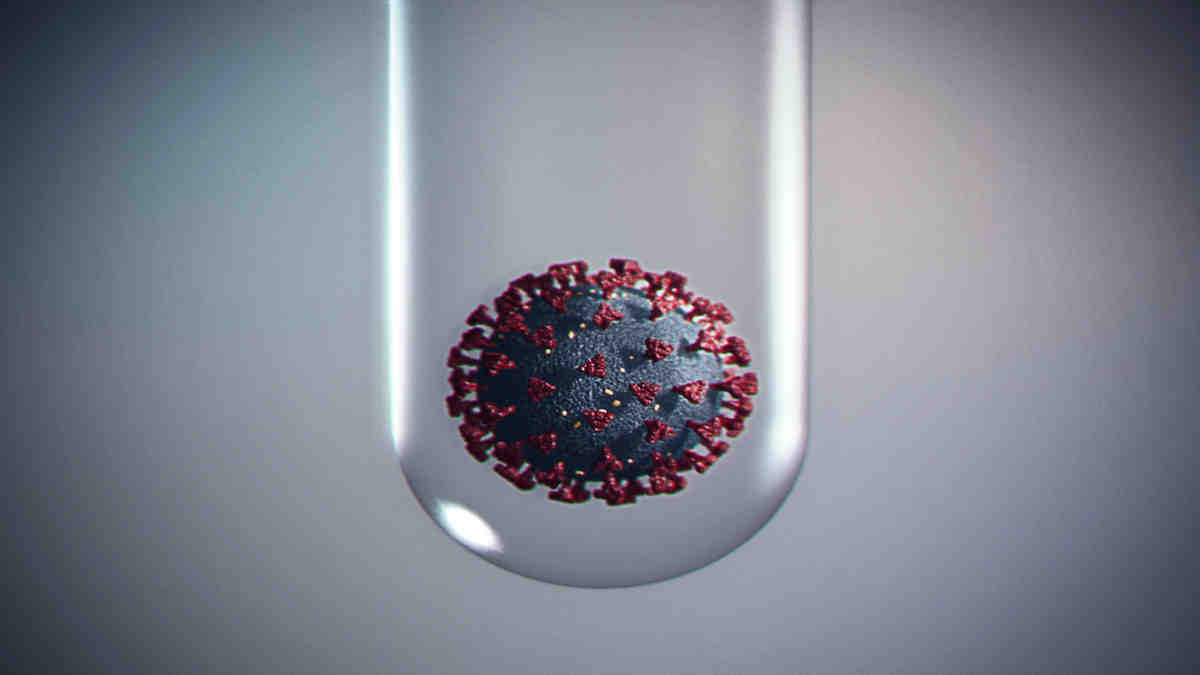PharmAust’s pill significantly protects against COVID-19 virus

Following its recent patent application, PharmAust (ASX:PAA) is continuing to make progress on its lead drug monepantel (MPS) to treat viral diseases. Image: Getty
While the focus has been largely on vaccines, PharmAust is trialling a pill that directly targets SARS-CoV-2. Today’s results are the next step towards a human clinical trial.
Following its recent patent application, PharmAust (ASX:PAA) is continuing to make progress on its lead drug monepantel (MPS) to treat viral diseases.
PharmAust announced today that three independent laboratories have finished examining the effects of MPS and metabolite monepantel sulfone (MPLS) on SARS-CoV2 infection, which is the causal agent of COVID-19 disease.
The three independent labs are Walter and Eliza Hall Institute of Medical Research (WEHI) in Melbourne, 360biolabs in Melbourne and Leiden University Medical Center (LUMC) in the Netherlands.
All three laboratories have demonstrated that both MPS and MPLS protect against cell death in-vitro, following infection with SARS-CoV2.
Furthermore, two laboratories have investigated the effects of MPS and MPLS upon the early stages of the SARS-CoV2 virus lifecycle, by examining RNA release into the culture media.
In one study, both MPS and MPLS showed an approximate 50% decrease of SARS-CoV2 viral RNA.
In another study that investigated MPLS only, SARS-CoV2 virus RNA in the media was shown to have decreased by 60-70% .
Details of the study
PharmAust collaborated with three independent laboratories to investigate the capacity of MPS and MPLS in-vitro.
The studies were specifically done to investigate SARS-CoV2-induced cell death, release of SARS-CoV2 RNA from the cell, as well as RNA infection of neighbouring cells.
Although latest results have shown that reductions in SARS-CoV2 viral RNA release to be moderate, previous studies from labs that used extended culture TCID50 (Tissue Culture Infective Dose) showed significant suppression of infectivity following MPL or MPLS treatment, of 99% and 75% respectively.
Another lab also showed a suppression rate of 95% for both MPL and MPLS on one cell line.
Last year, Walter and Eliza Hall Institute researcher Professor Marc Pellegrini (MBBS BSc FRACP PhD FAHMS), joint head of the Institute’s Infectious Diseases and Immune Defence division and an infectious disease clinician at the Royal Melbourne Hospital, stated, “These are encouraging anti-viral profiles. Demonstrating twice that infectivity of SARS-CoV-2 virus particles can be suppressed by up to approximately 95% in cell cultures is a remarkable outcome.”
PharmAust says it will continue to analyse TCID50 data to understand the optimal use of MPL as an anti-viral therapeutic, as it progresses towards a clinical trial.
Data from WEHI, 360 and LUMC’s investigations today have supported the hypothesis that both MPS and MPLS significantly protect cells in-vitro against SARS-CoV2-induced cell death, as well as inhibiting completion of the SARS-CoV2 life cycle by blocking transmission of virus to neighbouring cells.
The studies have also indicated that both MPS and MPLS may be acting later in the SARS-CoV2 virus life cycle than the well-studied and characterised drug, Remdesivir.
PharmAust believes this distinct mechanism shown by the two drugs may offer the opportunity to generate “combination cocktails” with other anti-viral drugs to simultaneously block multiple points of the virus life cycle.
Experts warn there is an urgent need for antiviral drugs to treat COVID-19
Associate Professor Steven Tong of the Doherty Institute recently stated:
“We’re struggling to get our vaccination rates up and even if we get them reasonably high there is still a reasonable likelihood that patients will get infected and will end up in hospital,” he said.
“So for those groups of people in the population, we still need treatment so we reduce their risk of getting very severe disease.
“So I think there’s absolutely a great need, an urgent need, for us to have better treatments for patients with COVID.”
“Even when 80 per cent of Australians are vaccinated, a significant proportion of the population will still be susceptible to the disease because they are resistant to the vaccine or choose not to be vaccinated.”
PharmAust’s progress with safe oral treatment
In moving its programs towards the clinic, PharmAust has commenced GMP-quality production of MPL, and has been engaging with clinicians in the UK and US as well as Eastern and Caucasus countries about a Phase I trial in human patients with COVID-19.
PharmAust director, Sam Wright told Stockhead: “We are very pleased with the results so far and are eager to commence human clinical trials once the tablets have been produced.”
The only anti-viral drug on the market currently approved for the treatment of COVID-19 infection is remdesivir (Gilead Science, Inc). Remdesivir is not a cure and in a clinically controlled trial it reduced time to recovery of hospitalised patients in intensive care from 15 to 11 days. With this success, early predictions were for annual sales of US$2-7.7 billion by 2022.
MPL may have a distinct advantage over many other drugs in development given that it has already been used in human clinical trials and is a very well-known drug with a high safety profile. Remdesivir is an intravenous therapy whereas MPL can be administered orally in tablet form. This means patients could be treated earlier when they first test positive rather than intensive care patients hospitalised with COVID-19.Last week, it filed a patent for the use of MPS in viral diseases.
The company expects that the application will be open for public inspection (OPI) around November this year.
PharmAust is also continuing to build its anti-viral preclinical data package by studying the effects of MPS and MPLS in models of human T cell leukaemia virus-1 (HTLV-1).
While also broadening the scope of MPS and MPLS potential anti-viral activity, the HTLV-1 models are considered to offer greatest relevance for translation into the clinic for both SARS-CoV2 and HTLV-1 infections.
Three weeks ago, PharmAust signed a deal with Melbourne-based Walter and Eliza Hall Institute (WEHI), to investigate the effects of MPS on human T-lymphotrophic virus-1 (HTLV-1).
The study of HTLV-1 is of particular significance due to the readily available nature of highly relevant in-vitro and in-vivo preclinical virus infection models, potentially providing the company with further data to support future human trials.
Apart from being listed on the ASX, PharmAust is also listed on the Frankfurt Stock Exchange (code: ECQ).
This article was developed in collaboration with PharmAust, a Stockhead advertiser at the time of publishing.
This article does not constitute financial product advice. You should consider obtaining independent advice before making any financial decisions.

UNLOCK INSIGHTS
Discover the untold stories of emerging ASX stocks.
Daily news and expert analysis, it's free to subscribe.
By proceeding, you confirm you understand that we handle personal information in accordance with our Privacy Policy.








